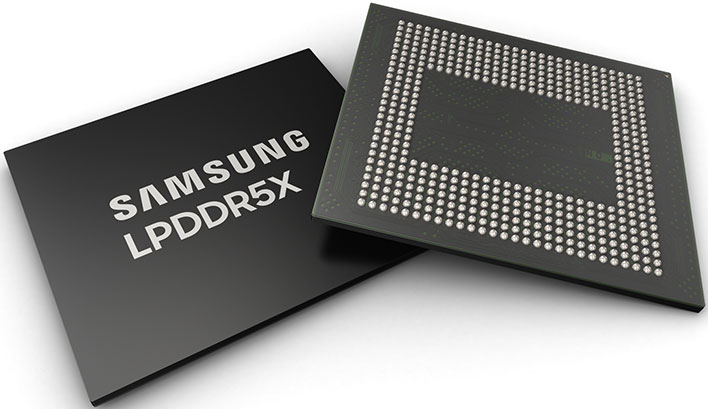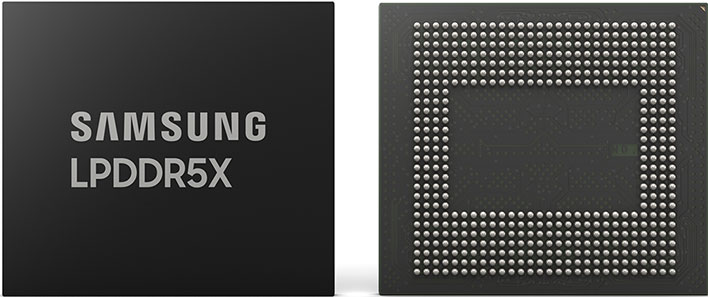Samsung Develops Speedy 8.5Gbps LPDDR5X DRAM For Fast 5G Devices And AI Applications
Samsung is in a boastful mood today, and for good reason—it has developed what it claims is the industry's first-ever 14-nanometer based 16-gigabit (Gb) low power data rate 5X (LPDDR5X) DRAM, which delivers a big boost in performance while consuming quite a bit less power compared to Samsung's LPDDR5. And it's not just for smartphones (though it will inevitably end up in handsets too).
This amounts to next-gen mobile DRAM. Samsung says it delivers data speeds of up to 8.5Gbps, representative of an impressive 1.3X uptick over LPDDR5, which operates at up to 6.4Gbps. And being based on a 14nm process technology, it more power efficient as well—Samsung says it uses 20 percent less power than LPDDR5.
This is perhaps a candidate for Samsung's upcoming Galaxy S22 series, though we'll have to wait and see. Beyond smartphones, however, Samsung is pitching its LPDDR5X as having the speed and power efficiency to drive high-speed data service applications, including things like 5G use cases, AI processing, and of course experiences within the metaverse.
"In recent years, hyperconnected market segments such as AI, augmented reality (AR) and the metaverse, which rely on extremely fast large-scale data processing, have been rapidly expanding," said SangJoon Hwang, Senior Vice President and Head of the DRAM Design Team at Samsung Electronics. "Our LPDDR5X will broaden the use of high-performance, low-power memory beyond smartphones and bring new capabilities to AI-based edge applications like servers and even automobiles."
There's some decent capacity on tap here as well. Samsung says its 16Gb LPDDR5X chips enable total memory packages of up to 64 gigabytes (GB).
As to when we'll see LPDDR5X in actual devices, Samsung didn't provide a time frame. It did say, however, that it has begun collaborating with global chipset makers "to establish a more viable framework for the expanding world of digital reality," and it expects LPDDR5X to play a key role in that effort.



